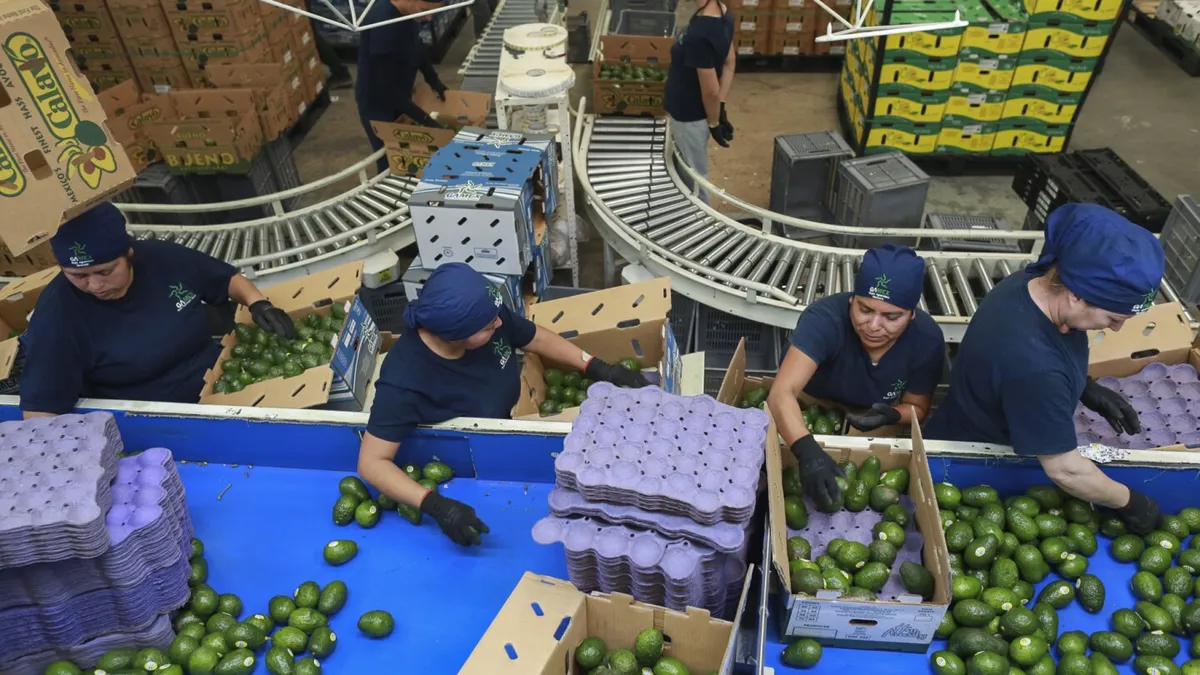
Marc Rosenberg, the founder and CEO of The Edge Desk, based in Deerfield, Illinois, is preparing to unveil an innovative ergonomic chair aimed at alleviating back pain and enhancing productivity. However, despite the anticipated success of this premium product, which he estimates will retail for over $1,000, Rosenberg is facing challenges in finalizing its price. The uncertainty stems from the ongoing tariff war instigated by President Donald Trump, particularly affecting imports from China.
Rosenberg has opted to decrease the volume of his shipments from China due to fluctuating tariff rates. Recently, President Trump imposed a substantial 25% tariff on imports from Canada and Mexico, only to roll back these tariffs on automobiles crossing the U.S. borders just a day later. This erratic policy has left many entrepreneurs, including Rosenberg, in a state of confusion. “The misdirection is making it very tough to plan for the year,” he explained, highlighting the challenges posed by a 20% tariff that has escalated from a previous 10% on Chinese imports.
The ramifications of these tariffs extend beyond individual businesses like The Edge Desk. Tariffs effectively act as a tax on importers, which can lead to increased prices for consumers, thus contributing to inflationary pressure. Additionally, they often provoke retaliatory measures from trading partners, further destabilizing economies. Tariffs not only complicate supply chain logistics for businesses but also hinder their ability to make critical decisions regarding investments, supplier choices, and pricing strategies. Eswar Prasad, an economist at Cornell University, warns that the current climate creates “an enormous amount of uncertainty” for multinational companies.
During Trump’s first term, U.S. business investment experienced a downturn towards the end of 2019, prompting the Federal Reserve to cut interest rates thrice in an attempt to stimulate the economy. The current administration's approach appears even more unsettling for businesses, as it utilizes national emergency powers to impose tariffs without the same level of scrutiny as previous policies. The introduction of “reciprocal tariffs” is another layer of complexity, potentially escalating tensions with international partners.
The imposition of tariffs has effectively undermined trade agreements like the 2020 North American trade deal, which Trump himself negotiated five years ago. Douglas Irwin, an economist at Dartmouth College, notes that the unilateral ability to impose tariffs casts doubt on the reliability of past agreements. This shifting landscape leaves businesses unsure about future policies and their implications.
Businesses across various sectors are expressing frustration over the lack of clarity in tariff policies. A recent manufacturing survey by the Institute for Supply Management highlighted that many customers are delaying orders due to tariff-related uncertainties. A transportation equipment company reported, “There is no clear direction from the administration on how they will be implemented, making it harder to project their impact on business.”
Small businesses are particularly vulnerable to these economic disruptions. Taylor Samuels, owner of Las Almas Rotas, a bar and restaurant in Dallas, relies heavily on imports from Mexico for his alcohol supply. The unpredictable tariff environment has forced him to reconsider his expansion plans. Similarly, Sandya Dandamudi from GI Stone in Chicago has noted that developers are re-evaluating their budgets in light of new tariffs, which can lead to project cancellations. “Those budgets will be blown,” she remarked, emphasizing the adverse effects on small enterprises.
The uncertainty surrounding tariffs is stalling growth for many businesses. Holly Seidewand, who owns a specialty spirits shop in New York, has had to put expansion plans on hold due to the unpredictability of tariffs affecting her inventory. “This will delay the growth of our business, making us a bit stagnant,” she stated, illustrating the broader trend of stagnation among small businesses facing tariff challenges.
As businesses like The Edge Desk navigate this complex landscape, the overarching theme remains clear: the unpredictability of tariffs is creating a challenging environment that hampers growth and complicates strategic planning. The future of small businesses in America may well depend on the resolution of these trade tensions and the establishment of more stable economic policies.